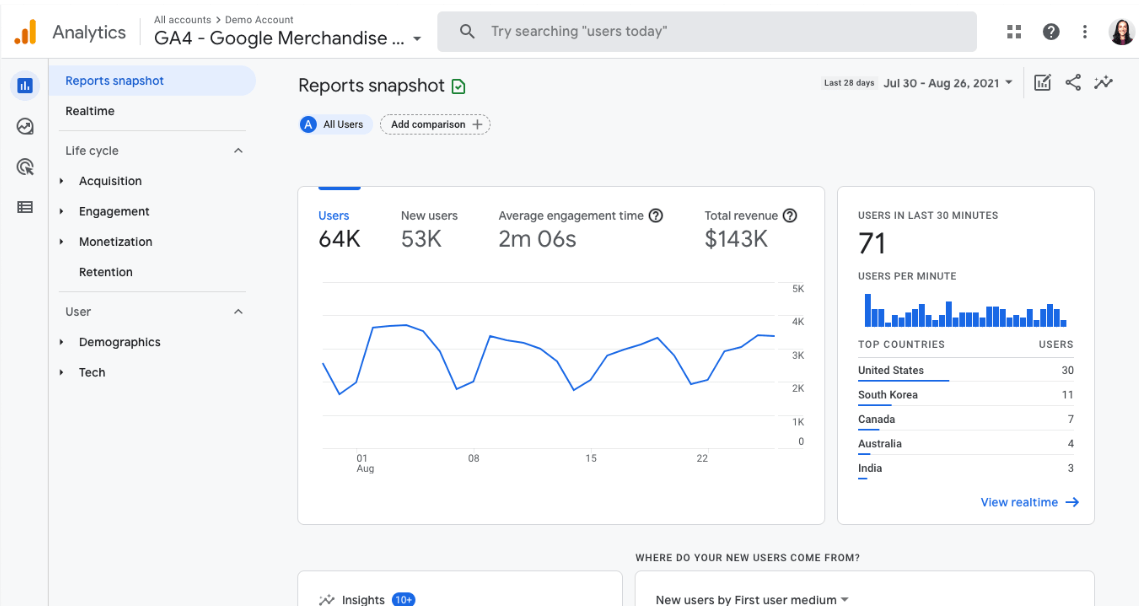Struggling to boost your sales performance? Key to success is effective lead tracking, a proven strategy which can increase sales by up to 30%.
This blog will guide you on how to implement a successful lead tracker system and provide tips for optimizing it for your business’s unique needs.
Key Takeaways
- Lead tracking is a proven strategy to increase sales performance by up to 30%.
- Key metrics for effective lead tracking include lead source, response time, contact rate, conversion rate, and lead close time.
- Choosing the right lead-tracking software and integrating it with CRM software and marketing automation tools can optimize the sales cycle.
- Personalizing marketing efforts, automating lead scoring, and keeping leads updated are actionable strategies to boost sales performance.
The Importance of Lead Tracking for Sales and Marketing

Lead tracking is essential for sales and marketing success as it allows businesses to measure the effectiveness of their efforts, identify areas for improvement, and make data-driven decisions.
What is lead tracking and why is it critical for success?
Lead tracking is a tool for your business. It keeps an eye on where possible buyers come from. It also tracks their actions and choices from their first visit to the last sale. This tool helps you find out what works best to turn leads into sales.
Using a lead tracker, businesses can know what buyers like and want more of. They can also tell which sales methods bring success. Lead tracking aids in finding valuable leads so businesses have a higher chance at making sales.
For all these reasons, lead tracking holds great importance for boosting your business success.
Key metrics for effective lead tracking
Good lead tracking boosts sales. It helps you watch your leads closely. You can pick out important details about each one. Here are key metrics you should follow:
| Metric | Description |
|---|---|
| Lead Source | This tells where your lead came from. It could be an email, a website, or a social event. |
| Response Time | This is how quickly you reply to a lead after they reach out to you. |
| Contact Rate | This shows how often you touch base with a lead. |
| Conversion Rate | This is tells how many leads turn into paying customers. |
| Lead Close Time | This is how long it takes for a lead to turn into a sale. |
Challenges and benefits
Lead tracking can bring up some tough spots. It’s not always easy to choose the right software. The tech must fit your team’s needs and skills. There could be a learning curve too.
But, this effort brings many wins.
With lead tracking, you see where leads come from. You know which marketing efforts work best for getting new leads and closing sales. Lead quality goes up as low-quality ones get left out.
It helps to save time and focus on more likely sales.
Lead tracking tells you about customer choices and habits. This info guides how to sell more effectively to them in the future.
Implementing Sales Lead Tracking Software

Choose the right lead tracking software for your team and maximize efficiency with these tips for efficient lead management.
Choosing the right option for your team
To choose the right lead tracking option for your team, consider your specific needs and technical capabilities. Look for software that integrates well with your existing systems, such as CRM software and marketing automation tools.
Utilizing Google Analytics and UTMs can help track leads and measure the effectiveness of your marketing campaigns. Take advantage of free lead tracking templates and spreadsheets to get started, or explore sales tracking software options that offer comprehensive lead management features.
By selecting the right tool or method, you can optimize your sales cycle and drive revenue growth effectively.
Tips for efficient lead management
- Use lead tracking software to organize and manage leads effectively.
- Prioritize high – quality leads to increase the chances of closing sales.
- Tailor sales strategies based on valuable insights from lead tracking software.
- Track and analyze customer behavior to understand which marketing efforts are working.
- Integrate lead tracking software with CRM and marketing automation tools for streamlined sales.
- Select the right lead tracking tool that aligns with your business’s needs and technical capabilities.
- Utilize Google Analytics and UTMs to track leads and measure marketing campaign effectiveness.
- Effectively manage and nurture leads using CRM software.
- Optimize your sales cycle by implementing a lead tracking tool.
- Drive revenue growth by accurately tracking leads throughout the sales process.
6 Stages of the Lead Management Process

The lead management process consists of six stages: acquiring, qualifying, scoring, nurturing, assigning, and tracking leads.
Acquiring, qualifying, scoring, nurturing, assigning, and tracking leads
Lead tracking involves several important steps to effectively manage and convert leads. Here are the key stages:
| Stage | Description |
|---|---|
| Acquiring Leads | Businesses attract potential customers through various marketing efforts such as online ads, content marketing, or social media campaigns. |
| Qualifying Leads | Once leads are acquired, businesses need to determine their quality by assessing factors like demographics, interests, and buying intent. |
| Scoring Leads | Assigning a score to each lead based on their level of interest and engagement helps prioritize follow-up actions and focus resources on high-quality prospects. |
| Nurturing Leads | Building relationships with leads through personalized communication, providing valuable information, and addressing their pain points helps move them further along the sales funnel. |
| Assigning Leads | Assigning qualified leads to the appropriate sales representatives ensures prompt and tailored follow-ups for better conversion rates. |
| Tracking Leads | Continuously monitoring the progress of each lead allows businesses to identify bottlenecks in the sales process, make data-driven decisions, and optimize future marketing strategies. |
Actionable Sales Strategies

Personalize marketing and sales efforts to cater to individual needs, automate lead scoring processes for increased efficiency, and ensure consistent communication with leads to keep them engaged and updated on relevant information.
Personalizing marketing and sales
Personalizing marketing and sales is a crucial strategy for businesses to boost their sales performance. By tailoring their outreach efforts to individual customers, businesses can create more meaningful connections and increase the likelihood of a sale.
With lead tracking software, businesses can gather valuable data on customer behavior and preferences. This information allows them to personalize their marketing messages and offer targeted promotions or recommendations.
By understanding what resonates with each lead, businesses can provide a more personalized experience that increases engagement and drives conversions.
Additionally, personalization helps businesses stand out in today’s crowded market by showing genuine care for potential customers. When leads receive relevant content or special offers that align with their needs and interests, they are more likely to respond positively.
This approach not only improves the overall customer experience but also builds trust and loyalty over time.
Automating lead scoring
Automating lead scoring is a crucial sales strategy that can help businesses identify their most valuable leads. By using lead tracking software, businesses can streamline the process of assigning scores to leads based on factors like engagement level and demographics.
This automation eliminates the need for manual scoring, saving time and ensuring consistency. With automated lead scoring, businesses can focus their efforts on nurturing high-scoring leads, increasing the chances of closing more sales.
It also allows them to prioritize leads effectively and allocate resources wisely for maximum efficiency.
Keeping leads updated
To ensure the success of your sales game, it is crucial to keep leads updated throughout the sales process. By doing so, you can maintain a strong relationship with potential customers and increase the chances of closing a sale.
Effective lead tracking software allows businesses to easily manage and update leads at each stage of the sales cycle. By keeping leads informed about new products or promotions, businesses can nurture their interest and encourage them to make a purchase.
Additionally, by regularly updating contact information and preferences, businesses can tailor their marketing efforts to better meet the needs of each lead. Ultimately, keeping leads updated improves customer satisfaction and boosts sales performance.
Lead Tracking Tools and Software

Implementing Google Analytics and UTMs allows you to track the source of your leads, while marketing automation and CRM software streamline the lead management process. Additionally, utilizing text follow-ups and lead statuses helps keep your team organized and informed about each lead’s progress.
Lastly, collecting comprehensive data on leads enables you to analyze trends and make data-driven decisions to boost sales performance.
Implementing Google Analytics and UTMs
To effectively track leads and measure the success of your marketing campaigns, implementing tools like Google Analytics and UTMs can be highly beneficial. With Google Analytics, you can gain valuable insights into user behavior on your website, such as how they found you and which pages they visited.
This information helps you understand which marketing efforts are driving the most leads.
UTMs (Urchin Tracking Modules) allow you to track the performance of specific links in your campaigns. By adding UTM parameters to your URLs, you can easily identify which channels or campaigns are generating the most conversions.
For example, if you’re running a social media ad campaign, adding UTMs to each ad link will show you exactly how many leads came from each specific ad.
Utilizing marketing automation and CRM software
Marketing automation and CRM software are valuable tools for businesses when it comes to lead tracking. With marketing automation, businesses can automate repetitive tasks, such as sending follow-up emails and updating leads’ information.
This not only saves time but also ensures that no leads fall through the cracks. Additionally, CRM software allows businesses to manage their customer relationships effectively by storing important lead data in one centralized location.
By utilizing these software solutions, businesses can streamline their lead tracking process and enhance their sales performance.
Text follow-ups and lead statuses
Text follow-ups and lead statuses are crucial components of effective lead tracking. Here are some key points to consider:
- Regularly following up with leads through text messages helps maintain engagement and build stronger relationships.
- Sending personalized and timely texts can help nurture leads and move them closer to making a purchase.
- Using automated text messaging tools can streamline the follow – up process and ensure consistent communication.
- Tracking the status of leads allows businesses to identify where each lead is in the sales pipeline.
- Assigning different statuses, such as “New Lead,” “Qualified Lead,” or “Closed Lead,” helps prioritize follow-ups and allocate resources effectively.
- By monitoring lead statuses, businesses can identify bottlenecks or gaps in their sales process and make necessary adjustments.
Collecting lead data
Lead tracking software provides businesses with the ability to collect and analyze important data about their leads. This data includes information such as contact details, website activity, and interactions with marketing campaigns.
By collecting this data, businesses can gain valuable insights into customer behavior and preferences, allowing them to personalize their sales and marketing efforts. This helps in identifying high-quality leads that are more likely to convert into sales.
With lead tracking software, businesses can efficiently collect and manage lead data, improving their overall sales performance.
Conclusion
In conclusion, implementing a lead tracker can greatly improve sales performance. By effectively managing and tracking leads, businesses can identify high-quality prospects, tailor their marketing strategies to customer preferences, and ultimately close more sales.
With the right tools and methods in place, businesses can optimize their sales cycle and drive revenue growth. Don’t miss out on the opportunity to boost your sales game with lead tracking software!
Frequently Asked Questions
What is a lead tracker and how does it help boost sales performance?
A lead tracker is a tool that helps businesses keep track of their potential customers. It helps boost sales performance by allowing sales teams to effectively manage leads, prioritize follow-ups, and improve communication with prospects.
Is using a lead tracker difficult or time-consuming?
No, using a lead tracker is not difficult or time-consuming. Most lead tracking tools are user-friendly and designed to simplify the process of managing leads. It can actually save time by organizing information in one place and providing easy access to customer details.
Can a lead tracker help me identify the most promising leads?
Yes, a lead tracker can help you identify the most promising leads by providing insights into their engagement level, interactions with your business, and buying behavior patterns. This allows your sales team to focus their efforts on high-potential leads that are more likely to convert.
How can a lead tracker improve sales team collaboration?
A lead tracker improves sales team collaboration by centralizing all customer data in one platform accessible to everyone on the team. This enables seamless communication, eliminates duplication of effort, and promotes better coordination when working towards closing deals.
Can I integrate my existing CRM system with a lead tracking tool?
Yes, many lead tracking tools offer integration options with popular CRM systems such as Salesforce or HubSpot. Integration allows for seamless transfer of data between platforms, providing an enhanced workflow for managing leads and maximizing efficiency in your sales process.



